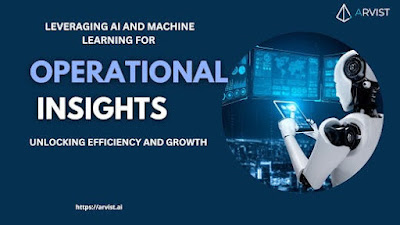Business Intelligence in the Age of AI: Leveraging Artificial Intelligence for Insights and Automation
Introduction
In today's rapidly evolving business landscape, the integration of artificial intelligence (AI) into Business Intelligence (BI) systems is revolutionizing the way organizations analyze data, gain insights, and make strategic decisions. By harnessing the power of AI, businesses can unlock deeper insights from their data, automate repetitive tasks, and drive innovation. In this article, we will explore the role of AI in Business Intelligence, discuss its benefits and challenges, and examine how organizations can leverage AI-powered BI tools to gain a competitive edge.
The Role of Artificial Intelligence in Business Intelligence
Artificial Intelligence encompasses a range of technologies, including machine learning, natural language processing, and predictive analytics, that enable computers to perform tasks that typically require human intelligence. In the context of Business Intelligence, AI is transforming traditional BI processes by:
- Advanced Analytics: AI-powered algorithms can analyze large volumes of data faster and more accurately than traditional methods, uncovering hidden patterns, trends, and correlations that may not be apparent to human analysts.
- Predictive Insights: AI models can forecast future outcomes and trends based on historical data, enabling organizations to anticipate market changes, customer preferences, and business risks.
- Automation: AI-driven automation streamlines BI processes by automating data collection, cleansing, and analysis tasks, freeing up human analysts to focus on higher-value activities such as decision-making and strategy formulation.
- Personalization: AI algorithms can deliver personalized insights and recommendations tailored to individual users' preferences, roles, and objectives, enhancing user engagement and productivity.
Benefits of Leveraging AI in Business Intelligence
- Enhanced Decision-Making: By leveraging AI-powered analytics, organizations can make data-driven decisions faster and with greater confidence, leading to improved business outcomes and competitive advantage.
- Improved Operational Efficiency: AI-driven automation reduces manual effort and accelerates BI processes, enabling organizations to analyze data in real-time and respond quickly to changing market conditions.
- Deeper Insights: AI algorithms can uncover insights from complex and unstructured data sources, providing organizations with a more comprehensive understanding of their business operations, customer behavior, and market dynamics.
- Innovation and Agility: AI-powered BI tools enable organizations to experiment with new business models, products, and services, driving innovation and agility in a rapidly evolving marketplace.
Challenges and Considerations
- Data Quality and Governance: AI models are only as good as the data they are trained on. Ensuring data quality and implementing robust data governance practices are essential to prevent biases, errors, and inaccuracies in AI-driven insights.
- Skills and Expertise: Building and deploying AI models require specialized skills and expertise in data science, machine learning, and programming. Organizations may need to invest in training or hiring data science talent to effectively leverage AI in BI initiatives.
- Ethical and Privacy Concerns: AI-powered BI systems raise ethical and privacy concerns related to data security, transparency, and bias. Organizations must address these concerns proactively and ensure compliance with relevant regulations and standards.
FAQs (Frequently Asked Questions)
Q: How can organizations get started with AI-powered Business Intelligence?
A: Organizations can start by identifying use cases where AI can add the most value, such as predictive analytics, natural language processing, or automation of repetitive tasks. They can then evaluate AI-powered BI tools and platforms that align with their business goals and technical requirements.
Q: What are some common applications of AI in Business Intelligence?
A: Common applications include predictive analytics for forecasting sales and demand, natural language processing for analyzing customer feedback and sentiment, and robotic process automation for automating data preparation and reporting tasks.
Conclusion
As organizations increasingly recognize the strategic importance of data-driven decision-making, the integration of AI into Business Intelligence systems has become essential for staying competitive in today's digital economy. By harnessing the power of AI to analyze data, gain insights, and automate processes, organizations can unlock new opportunities for innovation, efficiency, and growth. However, realizing the full potential of AI in BI requires addressing challenges related to data quality, skills, and ethics. With the right strategy, tools, and governance frameworks in place, organizations can leverage AI to transform their BI capabilities and drive business success in the age of AI.

Posting Komentar untuk "Business Intelligence in the Age of AI: Leveraging Artificial Intelligence for Insights and Automation"